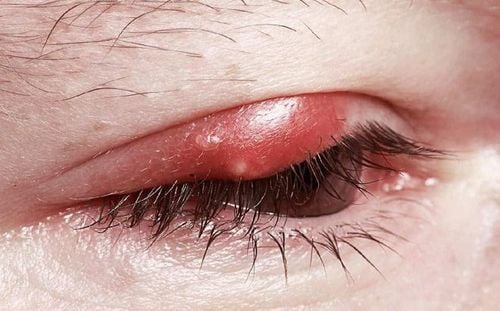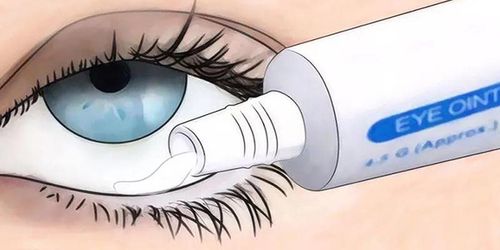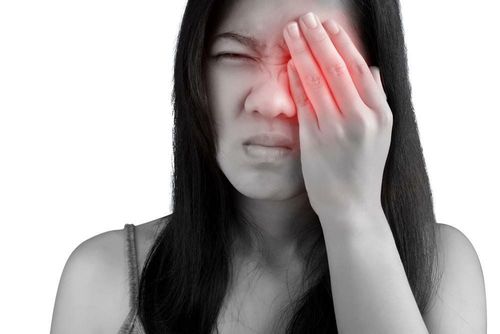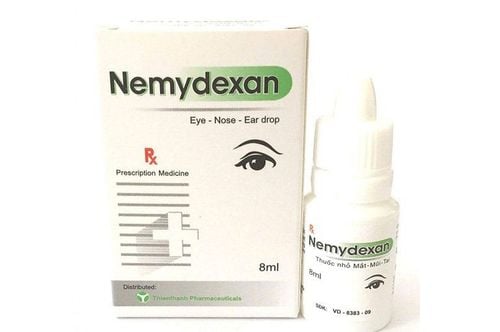This is an automatically translated article.
Limestone eyes may have no symptoms and are often discovered incidentally during an eye exam. Limestone in the eye is one of the benign diseases, rarely causing eye complications affecting vision. So will the lime stone in the eye go away on its own?
1. What is calcified eye?
Glaucoma is the deposition of calcium under the conjunctiva of the eyelid cartilage of the eyeball. There may be 1 or more calcified stones in the eyelids on one or both sides.
Limestone can occur at any age, the cause of this condition is not clear, but experts believe that it is related to each person's location. Limestone can form in many places in the body, but because it is easy to see in the human eye, it is easier to recognize.
Limestone in the eye is not dangerous to your life, but if there is a lot, it will cause a feeling of burning in the eyes.
If the calcification in the eye is small or small, there may be no symptoms, you only find it by accident during an eye exam. If the calcifications in the eyes are many or large, the symptoms encountered will often be lumpy like sand in the eye, causing you to blink many times, rub, tear, but your vision is still normal.
Limestone in the lower eyelid area will be more noticeable than the upper eyelid (because the upper eyelid needs to be flipped up to see). When you turn the lower eyelid, you will see one or more milky white particles the size of a ballpoint pen, it is located just below the conjunctiva of the eyelids. Limestone often occurs in:
People with chronic conjunctivitis; People with atopic allergies; Eyes exposed to direct sunlight, chemicals, dust, etc. If the limestone is located deep in the conjunctiva, it will not cause pain. The raised limestone will make you painful, lumpy and very uncomfortable.
If not treated, large calcifications will rub on the cornea every time you blink, over time will lead to corneal scratches, keratitis will then affect vision and the treatment will become complicated. more complex and costly.
2. Will lime stone go away on its own?
If you have been diagnosed with calcifications in your eyes, you should have regular eye exams, take the stones as prescribed by your doctor, do not take them yourself at home. Limestone cannot heal on its own but must be removed.
The removal of lime stones in the eye, if done at the right time, will be simple, quick, and less painful. People with calcifications in the eyes that cause discomfort and eye pain need to go to the doctor soon, rarely leaving calcifications causing complications causing keratitis.
You also need to keep in mind that, after the lime stone is removed from the eye, you need to drop the medicine according to the doctor's instructions, not arbitrarily use different drugs.
Regarding the treatment of lime stone disease, just do minor surgery to get lime. The doctor will numb the conjunctiva for you, then use the beveled side of the needle to scrape the lime. After minor surgery to remove calcifications, you will be given antibiotics and anti-inflammatory drugs.
3. How to prevent eyes from getting lime
The rate of complications of calcification in the eye is not high, but there are still severe cases clinically, such as: keratitis, corneal scarring, astigmatism. It is necessary to prevent this complication, not to self-treat, to seek medical attention when seeing abnormal signs in the eyes.
Measures to prevent lime stones in the eyes:
Limit, avoid contact with chemicals, smoke and dust. You should wear protective eyewear when you go on a dusty road. When you go home, if your eyes are red, you should use physiological saline to clean your eyes. If you have chronic conjunctivitis, you should treat it according to the regimen, to avoid recurrence of the disease many times. People who have had lime stones in the eyes need to pay attention to keeping good eye hygiene to avoid recurrence of the disease. Limestone often recurs so you must have regular eye exams to detect early. You need to avoid touching your eyes when you feel itchy or out of habit. It is the rubbing of the eyes with the hands that will bring more bacteria from the outside into the eyes, making the disease worse, and at the same time, rubbing will damage the surface of the eyeball. If your eyes are inflamed and red that doesn't go away after instilling saline, you need to see a doctor. When you have unusual eye symptoms, you should see a doctor immediately. Limestones in the eyes need to be removed with tools to remove the phenomenon of glare and glare. In some cases, the tiny particles of limestone are so numerous that they need to be taken many times to remove them. Therefore, if you find that your eyes are still uncomfortable after removing the lime stone, you should go to an ophthalmologist to check again, to see if the calcite particles have been completely removed.
Please dial HOTLINE for more information or register for an appointment HERE. Download MyVinmec app to make appointments faster and to manage your bookings easily.













